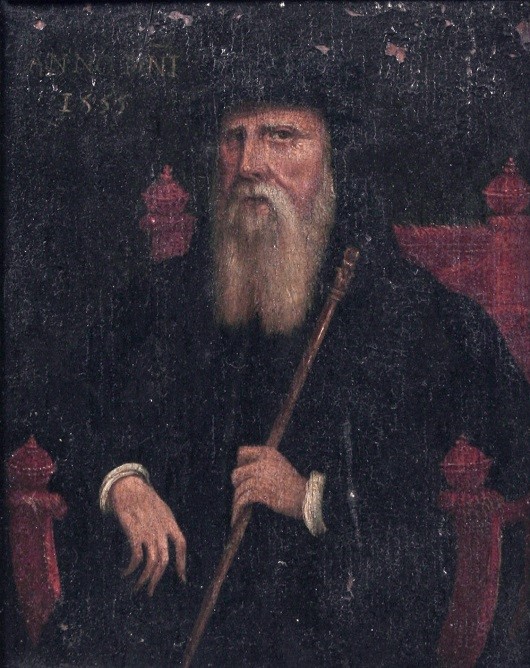Thomas Cromwell: Life Story
Chapter 4 : The End of Cardinal Wolsey (1529 – 1530)
The Parliament called in 1529, that sat until 1536, is known as the Reformation Parliament and it would prove to be one of the most important ever assembled in England. During it, Henry VIII, ably assisted, if not led, by Cromwell changed the face of the nation for ever.
One of the first debates was in regard to a “Book of Articles” brought forward by Thomas Howard, 2nd Duke of Norfolk and Wolsey’s inveterate enemy. Norfolk sought to have Wolsey condemned by an Act of Attainder, obviating the need for trial. Cromwell argued passionately, and successfully, against the Book. The charges were dropped, and in February of 1530, Wolsey was granted a general pardon by the King. During this whole period, Wolsey wrote long, trusting letters to Cromwell and George Cavendish recorded that

‘There could nothing be spoken of against my Lord in the Parliament House, but he (Cromwell) would answer it incontinent …at length, for his (Cromwell’s) honest behaviour in his Master’s cause, he grew into such an estimation in every man’s opinion, that he was esteemed to be the most faithful servant of his master…wherein he was of all men greatly commended.’
Despite this positive assessment by Cavendish, Cromwell’s biographers differ in their treatment of his actions during 1529 and 1530 in regard to his support of Wolsey. Borman and Williams take his continued support of Wolsey at face value, but Robert Hutchinson gives a very much more cynical view, citing numerous letters where Wolsey begs for Cromwell to visit him, and points out that many of Cromwell’s actions can be seen as advancing his own cause – for example, Wolsey, realising that Anne Boleyn’s influence was growing ever stronger, wanted advice on what to do about it. Cromwell suggested that presents for her and her family would not come amiss, and, accordingly, Wolsey granted several pensions to the Boleyn family out of his estates as Bishop of Winchester. Hutchinson suggests that Cromwell was eager to take the credit with the Boleyns for these favours.
Elton’s view is that, as soon as was compatible with decency, Cromwell sought out the King’s service. Everett makes the interesting point that we are looking at the matter with hindsight – in the period 1529-1530 people could not know that Wolsey was doomed – Henry’s behaviour was certainly ambivalent, and, given the King’s genuine affection for Wolsey, and their long history together, it was certainly not impossible that the Cardinal could stage a come-back. Although Henry had shown himself ruthless in dispatching one or two of his nobles, the wholesale executions of wives and former favourites was yet to come. Cromwell may therefore have simply been continuing business as usual, until the time came when he had to choose between staying with the Cardinal when he was sent to live in his archdiocese of York, and remaining in London, perhaps to plead for Wolsey, or, by that time, to try to advance his own career.
The next stage of Cromwell’s career is rooted in the work he did for Wolsey. As the man who arranged the founding and building of Wolsey’s Colleges, and managed the Cardinal’s financial and property business, he was the individual with the most knowledge and understanding of the complex legal issues surrounding the lands of the Colleges, and also Wolsey’s other property, most notably York Place.
Strictly speaking, York Place belonged to the Archdiocese of York, not to the Cardinal. Henry, however, had taken a distinct fancy to it, and decided to appropriate it to build a new palace. He also wanted to use some of the revenues and lands belonging to York Place and other church lands to make grants to courtiers he wished to reward. The Tudor age was extremely legalistic and litigious. It was important that land grants were correctly made (and this involved a great deal of copying, stamping, signing, witnessing, sealing and use of correct terminology) or disputes would arise. As it was ecclesiastic land, there was some uncertainty as to the long term validity of any grants made by the King out of York Place’s revenues. At the very least, it was thought that Wolsey needed to endorse some of the grants.
Cromwell was able to use of his legal skills and intimate knowledge of the Cardinal’s lands to smooth the way for recipients. These activities brought him into regular contact with the King, as for example, when Henry wanted to grant Lord Scales an office in Wolsey’s gift, Cromwell was requested to draft a letter for the King to send to Wolsey. In these legal matters, there was much profit to be made as suitors promised fees and pensions to Cromwell to have their matter treated expeditiously. The King was impressed, and, as Sir John Russell wrote to Cromwell, ‘the King’s Grace had very good commendation of you.’

At some point between February and April of 1530 this good impression was translated into a concrete reward, as Cromwell was officially retained as a servant of the King. Nevertheless he was still acting for Wolsey, and gave the Cardinal excellent advice, as, comforted by merely being banished to York, Wolsey could not help himself becoming embroiled in levels of display and extravagance that were bound to cause questions to be asked. The deal, whether or not explicitly stated to Wolsey, was that he would be allowed to retire quietly, provided no-one ever heard of him again.
Cromwell told Wolsey to restrain his passion for building and content himself with a quiet life, advice Wolsey spectacularly failed to follow. In the last letter between them, Cromwell takes Wolsey firmly to task for having said or written something injurious to Cromwell – perhaps Wolsey believed he had been betrayed by his old servant. Cromwell was offended
‘Truly your Grace in some things over shooteth yourself. There is a regard to be given what things you utter and to whom…”
Hutchinson believes that Cromwell had, in fact, betrayed the Cardinal and that his indignation was feigned.
Whatever the truth of the matter, Wolsey’s death on 29th November 1530 released Cromwell from any lingering bonds of service and within a few weeks he was appointed to the King’s Privy Council.According to Cavendish, on his promotion to the Council, Sir Thomas More, Lord Chancellor, advised him
‘…in your counsel giving unto His Grace, ever tell him what he ought to do, but never what he is able to do. So shall you shew yourself a true faithful servant and a right worthy councillor. For if a lion knew his own strength, hard were it for any man to rule him.’




